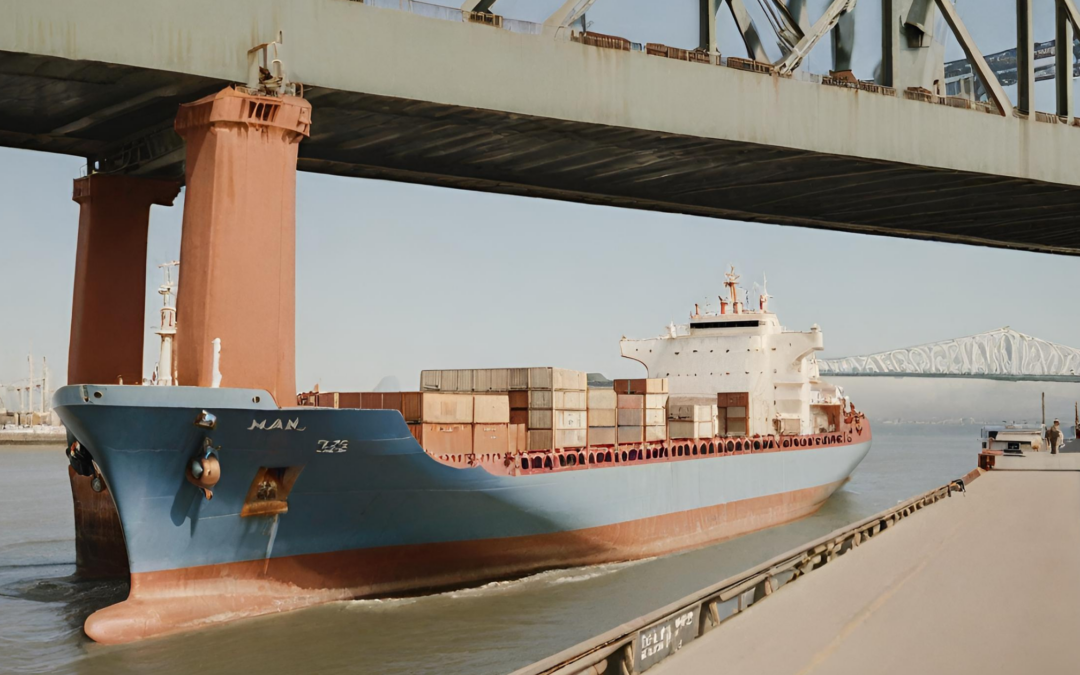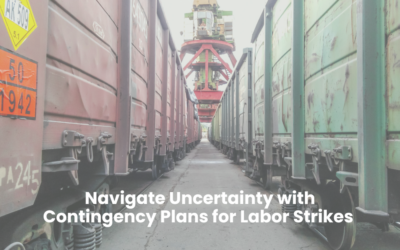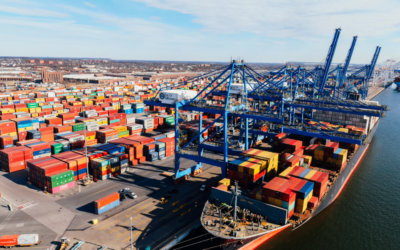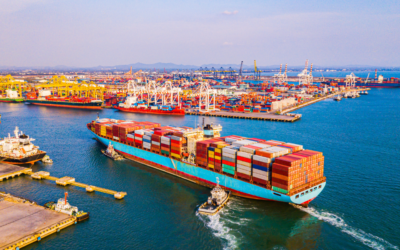In the busy and fast-changing world of international trade, companies require smooth logistics to continue uninterrupted business operations. Unfortunately, the recent cargo ship crash at Francis Scott Key Bridge in Baltimore Harbor has sent shockwaves throughout the industry. This event has disrupted supply chains and prompted businesses and freight forwarders to rapidly develop contingency plans. To ensure successful deliveries, your business must stay informed of these kinds of events and be ready to adjust as needed.
The Immediate Impact of the Cargo Ship Crash
As has been reported, six construction workers were killed as a result of the crash. Three bodies have been recovered, while another three remain trapped under the debris. All were immigrants from Mexico and Central America who were filling potholes on the bridge at the time of the impact.
While the cause of the crash remains under investigation, officials have stated that the vessel lost power shortly before the impact, which could be a major factor.
The bridge collapse has made it impassable to maritime traffic with ships unable to navigate into or out of the port. This closure has stopped the flow of shipments to and from Baltimore Harbor. A crucial hub for regional trade and one of the busiest ports on the East Coast, its closure has sparked a ripple effect to supply chains, manufacturing operations, and consumer markets.
As reported by USA Today, this disruption has led to immediate and urgent efforts to mitigate the fallout. Tugboats and salvage teams have been called in to clear debris and assess the structural integrity of the bridge.
Long-term Implications
In addition to the immediate logistical challenges from the cargo ship crash, long-term issues are forthcoming. A delay in shipments can lead to inventory shortages, which will affect production schedules, not to mention customer service. Businesses can also expect increased transportation costs due to rerouting and congestion, which can reduce profit margins or, alternatively, lead to higher costs of goods passed on to consumers.
There are concerns about the effects of the cargo ship crash on Baltimore’s economic landscape as well. A long port closure could become a logistical nightmare and drastically reduce income and jobs in the area. The businesses that rely on maritime transportation are preparing for bigger potential losses. Add to this a projected $2 billion bill to rebuild the bridge and a timeline that could last years, and the effects will likely be long lasting.
The Importance of Contingency Planning
As companies continue to deal with the effects of the crisis, they are beginning to reassess their strategies and contingency plans. Currently, alternative routes and temporary storage facilities are being explored to reroute cargo and alleviate congestion.
Other ports along the East Coast, such as New York and Norfolk, are bracing for increased traffic as shippers seek alternative routes to bypass the bottleneck caused by the closure of Baltimore Harbor. WTOP News reports that authorities are working to expedite recovery efforts and reopen the harbor as soon as possible, but the timeline remains uncertain. Significant disruptions may continue for weeks or even months. Businesses, therefore, must plan for long-term alternatives to routes and modes of transportation to mitigate negative fallout for their operations.
Benefits of Partnering with a Freight Forwarder
When disaster strikes in the shipping industry, it can be a challenge to develop alternatives and stay ahead of the situation. That’s why having a freight forwarder such as Cyclone Shipping as a partner to your business is so vital. Your business is customer service, and by outsourcing your shipping needs, you gain access to:
Real-time Updates
Freight forwarders provide clients with the latest developments in the industry and offer proactive solutions to minimize disruptions to their operations.
Alternative Routes
By leveraging a global network and industry expertise, freight forwarders quickly identify alternative shipping routes to ensure timely delivery of goods.
Streamlined Logistics
From customs clearance to last-mile delivery, freight forwarders streamline the logistics process to optimize efficiency and reduce costs for their clients.
A partnership with a freight forwarder enables businesses to better navigate the challenges posed by the cargo ship crash at the Francis Scott Key Bridge with confidence and resilience.
Looking Forward
The cargo ship crash in Baltimore has highlighted the vulnerability of global supply chains to unforeseen events. However, with careful planning and strategic partnerships, businesses can mitigate the impact and emerge stronger from adversity.
As a trusted freight forwarder, Cyclone Shipping remains committed to supporting our clients through turbulent times, providing reliable logistics solutions and unwavering support. Together, we will navigate the storm and emerge stronger on the other side.
For more information on how Cyclone Shipping can assist your business during this challenging period, contact us today.




